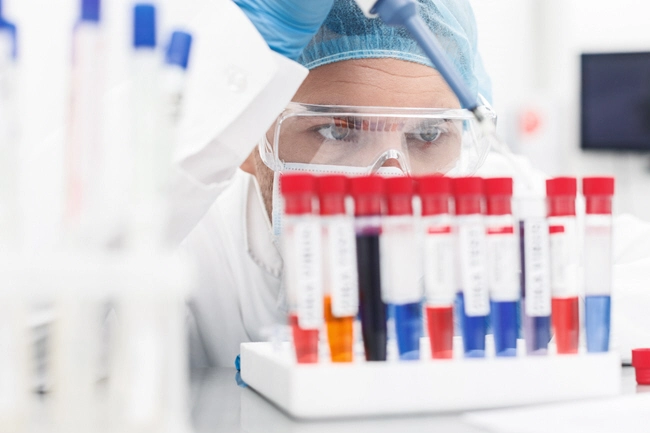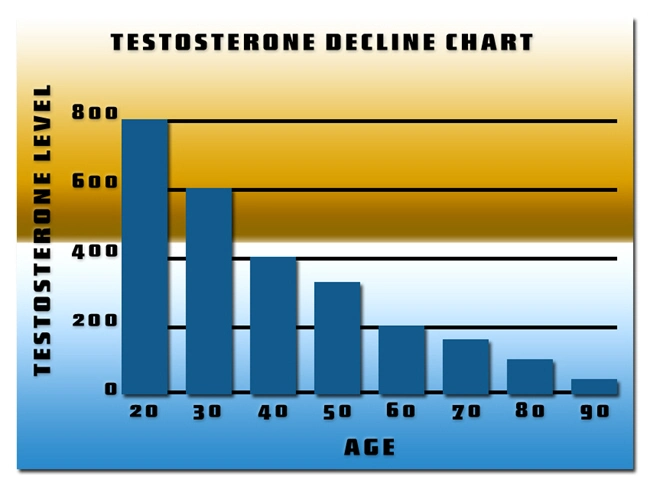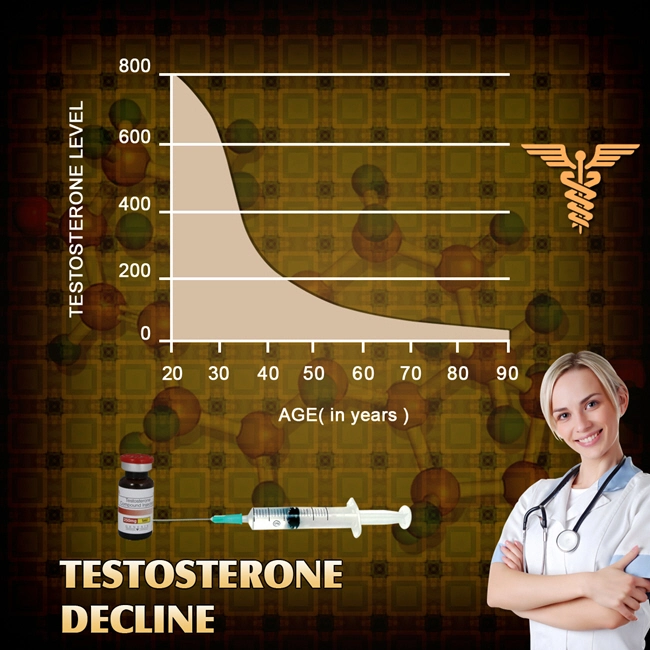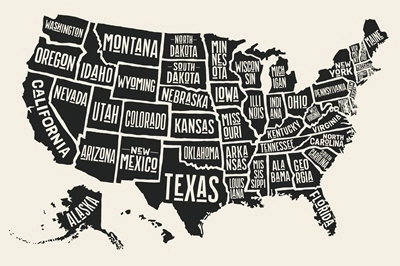
Video Link: https://vimeo.com/258930720
Video Download: Click Here To Download Video
Video Stream: Click Here To Stream Video
Testosterone Replacement Therapy (TRT) is being considered by many men, especially older men.
One of the most significant concerns of men over age 50 is losing strength as they age.
They don’t want to lose their independence because of their frailty.
So, what can they do to keep their muscles and bones healthy?
The answer is, what’s really behind their loss of strength.
Low Testosterone ('Low-T”) Levels Increase a Man’s Risk for Disability
Fact: certain forms of exercise, diet, and supplements will help older folks keep their bones and muscles stay active as they age.
But that’s just part of the story.
A recent study published in the Journal of Clinical Endocrinology and Metabolism shed new light on something that may be more important to prevent functional disability as you get older: your Testosterone, or “T” levels.
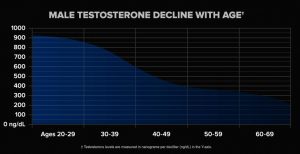 The researchers’ study confirmed what many orthopedic doctors had long believed: a man seems to lose more muscle mass as he gets older than a woman does, especially over age 65.
The researchers’ study confirmed what many orthopedic doctors had long believed: a man seems to lose more muscle mass as he gets older than a woman does, especially over age 65.
The reason for this, their study says, is decreased Testosterone levels.
Testosterone, a steroid, governs a man’s muscle composition and how he functions physically.
“Low T” levels can set you up with decreased muscle mass and loss of strength, especially in your lower body. This puts you at higher risk for falls that can result in severe fractures like those of the hips and legs.
The researchers, out of Kaiser Permanente Health Care System in Portland, Oregon, revealed that men over age 65, with higher Testosterone levels, had significantly less muscle mass loss in their arms and legs.
They had less loss of leg function and could stand up more easily from a chair, without loss of balance, than those men with lower Testosterone levels.
In their assessments of males in this age group, they tested several things -- their ability to rise from a chair, their grip strength, lower extremity strength and how fast they could walk.
The men with higher Testosterone levels had much “younger” scores than similarly aged men with lower Testosterone levels.
The researchers concluded that higher-to-normal Testosterone levels resulted in a more functional and healthy aging experience in older men.
So, does that mean that older men are doomed to less strength and independence because of natural Testosterone decline as they age?
Possibly, if they just sit in their recliners or stay on their couches and refuse to take action to stop the destruction of their bodies that Mother Nature has planned.
However, getting older doesn’t have to mean a significant decrease in Testosterone.
Let’s look at a few things that can contribute to low Testosterone...
The Modern World is Full of Estrogen
There have always been reasons why a man’s Testosterone level might be too low, including the genes you were born with, diet/nutritional deficiencies, and just plain aging in general.
But there is one particular factor that needs addressing: a side effect of modern technology that has become a vital health issue...environmental estrogens.
In today’s modern world, we use fertilizers to keep our lawns green, pesticides, and hormones to grow our food and have landfills full of plastic from our 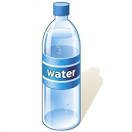 microwave dinners, water bottles, and food containers.
microwave dinners, water bottles, and food containers.
All of these factors have one thing in common: they contain xenoestrogens, an environmental version of the female sex hormone Estrogen.
These estrogens get into our food and water supply and can imbalance a man’s testosterone levels.
In fact, a 20-year study of Testosterone levels in men showed that Testosterone levels had dropped 17% overall in the population between the years 1987 and 2004.
Too much estrogen in a man’s system can result in undesirable feminizing effects such as:
- Enlarged breasts
- Obesity -- particularly belly fat
- Inability to get or sustain an erection
- Low sperm count
- Decreased/lighter facial/body hair
Because estrogens are so widespread in our environment and our food packaging, it’s nearly impossible to avoid coming into contact with environmental estrogens.
However, here are some simple things you can do every day to avoid ingesting an overabundance of them:
- Avoid all pesticides, herbicides, and fungicides. Wash your fruit and vegetables well with a particular wash you can buy in most produce departments.

- Use a good water filter in your tap water.
- Buy hormone-free meats and dairy products if possible.
- Never, ever microwave food in plastic containers or use plastic wrap to cover food for microwaving. Heating allows the chemicals in the plastic to leach into your food. Instead, buy brands that use only cardboard warming trays. Use wax paper to cover your food.
- Use glass or ceramics whenever possible to store food.
- Do not allow plastic containers to stay in the sun, especially those containing soda or drinking water. Exposure to heat releases chemicals into your beverage. Discard them if they are cooked and do not drink the contents of the bottle.
Symptoms and Health Concerns of Low Testosterone
Testosterone can start to decline in men as early as age 30, but usually, it begins around middle age, roughly the late ’40s through mid-'60s.
Current research estimates that 2-4 million American men have low Testosterone levels and only about 5% of them are treated for it.
Having low testosterone levels not only makes you feel miserable, but they can also contribute to some serious diseases such as...
- Heart disease
- Prostate problems
- Adult-onset diabetes
- Weak, brittle bones (osteoporosis)
- Depression, mood swings, mental fog, and confusion
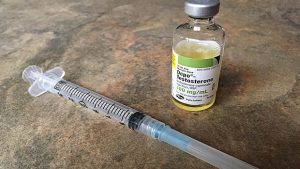 If you’re healthy, decreasing Testosterone as you get older isn’t a natural occurrence.
If you’re healthy, decreasing Testosterone as you get older isn’t a natural occurrence.
If you’re deficient in Testosterone, it’s more likely the result of an underlying illness.
This was the finding of a separate study recently conducted in Australia that said a man’s age itself is not the cause of decreasing Testosterone.
This is surprising new evidence since many researchers, and doctors alike, have believed that “Andropause” in men -- like Menopause in women -- is a result of a natural, age-related decline in Testosterone.
The Australian researchers pointed out that, if this were true, all older men would undergo a decrease in Testosterone levels...but they don’t.
Those men studied who were in excellent health had normal Testosterone levels.
This was despite also being in the Andropause age bracket: over 40, median age 60.
Those men with symptoms of fatigue, low libido, depression -- some common symptoms typically associated with “Low-T” in men -- were also found to have other underlying conditions.
These most often included obesity and heart disease.
Their “Low-T,” the researchers concluded, was not from age-related hormone deficiency -- instead, the underlying health condition.
How Do These Studies Benefit You, An Older Man?
The takeaway from these studies is that decreased Testosterone isn’t a natural, foregone conclusion of getting older.
But if you are deficient in testosterone, you’ll be at higher risk for muscle mass loss, falls, and fractures as you get older.
Therefore, if you are deficient in Testosterone (a simple blood test can verify your levels), you’ll want to address any underlying health condition that may be causing it.
causing it.
If you’re overweight, you’ll want to normalize your weight. You’ll also want to get screened for heart disease and start treatment for that.
It’s also a good idea to get a general check-up to see if any other underlying health conditions may be contributing to your low-T levels.
In the meantime, consider boosting Testosterone levels naturally through these methods...
- Exercise. Weight training, as well as HIIT (High-Intensity Interval Training), raises Testosterone naturally. It also helps increase muscle mass and strength. But don’t overdo it. 3-4 times per week is recommended. Remember, lack of physical exercise/too much physical exercise such as sports training can both work against you. Strive to find the balance in your exercise routine that works best for you.
- Diet. Get rid of all the foods that contain “xenoestrogens.” These are environmental estrogens that can suppress a man’s testosterone production. Don’t microwave food in plastic dishes that can seep a major xenoestrogen, bisphenol-A (BPA), into your food. Be sure to include steamed broccoli in your diet as its indoles help pull xenoestrogens out of your body. Normal cholesterol levels are good, but too low total cholesterol can be a problem as you need it to make Testosterone. Don’t be afraid to include some eggs and grass-fed beef in your diet. These also increase zinc that helps build muscle and Testosterone.
- Sleep. Lack of adequate rest can zap Testosterone levels significantly. It also creates inflammation in your body that sets you up for illness.
- Lifestyle. Too much alcohol, caffeine, recreational drug use, constant high stress from either your job or relationships, smoking, and chronic diseases decrease Testosterone by raising cortisol levels. They can also increase your risk of other illnesses. Excessive alcohol intake lowers Testosterone levels.
- Supplements. Deficiency in certain vitamins and minerals could create low-T levels too. Be sure your Vitamin D3 levels are normal. If not, supplement with 1-2,000 IU daily.
- Also, get enough Omega-3 oils (2-4,000 mg a day) to create LH -- Luteinizing Hormone that stimulates the production of Testosterone. You may also be low in DHEA (Dehydroepiandrosterone) that helps create Testosterone. Get your levels tested and supplement accordingly.
Stay a robust, powerful, and independent man, even as you get older, by paying close attention to your health.
Be proactive in maintaining healthy Testosterone levels through optimal nutrition, exercise, rest, and avoiding things in your life that could be zapping your Testosterone.
Eat a Testosterone Boosting Diet
The role of nutrition is so important and therefore deserves a more detailed review.
Unsightly rolls of belly fat and “man breasts,” sometimes referred to as “bitch tits,” have become a frightening, totally unwanted trend in many older men.
As described earlier, one reason men are increasing these feminizing fat 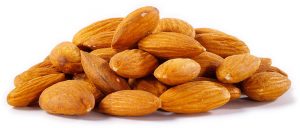 deposits is environmental estrogens which have gotten into our food and water supplies.
deposits is environmental estrogens which have gotten into our food and water supplies.
Another reason is the very low-fat diets men are eating these days trying to lose their increased body fat.
That’s right.
A man makes Testosterone through cholesterol.
So, if his cholesterol levels are too low from a low-fat diet, he will not make enough Testosterone.
Paradoxically, to lose this feminizing body fat men need to raise their fat intake!
The trick is to include healthy, good fats in the diet, at about 30% of daily food intake.
These healthy fats help manufacture Testosterone and should come from:
- Mostly monounsaturated sources, like nuts, olive oil, avocados
- Moderate amounts from polyunsaturated sources like salmon and fish oils
- Smaller amounts from saturated sources like red meat.
You might worry that eating a higher fat diet and possibly higher cholesterol levels will put you at risk for heart disease.
According to recent medical research, inflammation, rather than higher cholesterol levels, appears to be the real factor that determines whether you will develop heart disease and suffer a heart attack.
Polyunsaturated fats help reduce inflammation in your body and protect your heart. So, allowing more of the right kinds of fat into your diet will not only help you build Testosterone, it will help protect your heart.
Here are some other food suggestions to help optimize your Testosterone levels:
- Monitor fiber intake: 20-25 grams a day is adequate for good bowel health. More, however, and you reduce cholesterol levels too much. Fiber sweeps all fats (even the good) out of the intestines before they are absorbed.
- Adequate protein intake: Studies have shown that higher protein, combined with lower simple sugar intake can help create Testosterone. Aim for at least 0.5 grams of protein for each pound of body weight. If you weigh 200 pounds, your protein intake would be about 100 grams. Read labels to track your protein intake.
- Balance carbs: Consume lower glycemic carbohydrates like fruits, vegetables, whole grain bread, yams, etc. Limit high glycemic, simple sugar carbs, such as cookies, cake, and candy to an equal-portioned treat once, may be twice, a week.
Supplemental Testosterone Therapy
If, after you’ve made the necessary and positive changes in your diet and lifestyle, you still are experiencing low Testosterone and its symptoms, you may want to consider taking supplemental Testosterone.
These are not the dangerous anabolic steroids of the past that are potentially hazardous to your long-term health.
Instead, these are both natural, herbal preparations and prescription-only pharmaceuticals.
First, make sure your symptoms are indeed Testosterone-related by getting your levels checked by a simple blood test.
Although some controversy exists amongst healthcare professionals as to the pros and cons of augmenting Testosterone, you and your doctor can decide if any of these methods would be right for you:
- Herbal testosterone boosters -- these are products that can contain Chrysin, a bioflavonoid that reduces Estrogen in your system and boosts Testosterone; Maca, a root herb used by the Peruvian Indians touted to increase sperm and testosterone levels. These herbal preparations do not have the
 risks or possible side effects associated with prescription Testosterone preparations and also cost much less.
risks or possible side effects associated with prescription Testosterone preparations and also cost much less. - Important Note -- Yohimbe is both an herbal “male performance-boosting” supplement and a prescription drug. However, the Food and Drug Administration (FDA) has reported that it can have some severe side effects with improper, unmonitored use, including renal failure, seizures, and death. Exercise extreme caution with Yohimbe and many physicians recommend avoiding it altogether.
- Topical Testosterone – these are prescription-only gels/creams that are applied to the skin. Be aware that you should not allow women (especially pregnant), or children to come in contact with the area of skin where you applied the gel. Doing so can cause congenital disabilities in an unborn fetus or male features in women.
- Testosterone injections – these are prescription-only drugs given one to two times a month. They need administering by a doctor or nurse practitioner. There can be many side effects and risks associated with injections that your doctor can explain to you.
Though there are many reasons why a man’s Testosterone levels may decrease, but natural aging is the most significant factor.
There are many things that you can do to regain youthful levels of Testosterone before you consider supplementation of Testosterone, whether natural or prescription.
Following a diet containing healthy fats, avoiding environmental estrogens, getting rid of chronic emotional stress factors as best you can, and performing regular physical exercise at least three times a week, will all help you boost those low-T levels and regain your confidence as a robust and vital man!
Symptoms and Health Concerns of Low Testosterone...
- Chronic fatigue
- Erectile dysfunction (might be Testosterone- or heart-related)
- Sleep disturbance (too much, not enough)
- Decreased/lighter body hair
- Sweating
- Depression
- Reduced stamina, muscle mass, physical recovery after activity
- Weak bones, fractures
- Weight gain/fat distribution (breasts and belly)
- Memory loss
- Psychological symptoms can include decreased motivation, impaired judgment, foggy thinking, lack of aggressiveness, apathy
Is Testosterone Replacement Therapy for You?
If you suffer from any of the symptoms mentioned above, a simple blood test can determine your Testosterone levels.
Although younger men with low Testosterone levels frequently receive Testosterone injections, there is some controversy amongst doctors whether to give it to older men, even though their  symptoms and blood tests may warrant it.
symptoms and blood tests may warrant it.
Most of the concerns arise from previous beliefs that higher Testosterone levels put men at increased risk for prostate cancer.
However, the Journal of the National Institute of Cancer recently reported that there is no real cause and effect between higher Testosterone levels and prostate cancer.
In the past, the widespread use of a form of Testosterone in anabolic steroids amongst athletes and bodybuilders, a long with its adverse effect on heart health, was also a concern.
However, many men have taken Testosterone supplementation for years without adverse effects. In fact, it has allowed them to stay active and healthy into advanced years.
Although decreasing Testosterone levels are a natural part of getting older, you don’t have to live with the quality-of-life affecting symptoms it can cause.
Just as many women undergo Estrogen Replacement Therapy during Menopause and gain many health benefits, men too can benefit from supplemental Testosterone.
Never forget, it is possible to restore or maintain, healthy Testosterone levels so you can have energy, a satisfying sex life, optimal weight, and a bright mood that puts you back in the game!
Contact us for a FREE, no-obligation discussion of the benefits of Testosterone Replacement Therapy (TRT).
References
The 6 Best Testosterone-Boosting Foods!
https://www.bodybuilding.com/content/the-6-best-testosterone-boosting-foods.html
30 Foods that Boost Testosterone Levels Naturally
Contact Us Today For A Free Consultation
Dear Patient,
Once you have completing the above contact form, for security purposes and confirmation, please confirm your information by calling us.
Please call now: 1-800-380-5339.
Welcoming You To Our Clinic, Professor Tom Henderson.

- LabCorp Announces a Change to the Testosterone Reference Range [Last Updated On: May 11th, 2024] [Originally Added On: June 23rd, 2019]
- Important Facts About Testosterone Therapy Before Buying [Last Updated On: May 13th, 2024] [Originally Added On: July 13th, 2019]
- Soy: Does it Lower Testosterone? [Last Updated On: October 18th, 2024] [Originally Added On: August 30th, 2020]
- Testosterone Treatments May Successfully Reverse Type-2 Diabetes in Some Men [Last Updated On: May 10th, 2024] [Originally Added On: November 13th, 2020]
- Testosterone Replacement Therapy (TRT) May Prevent Heart Attacks and Diabetes [Last Updated On: May 16th, 2024] [Originally Added On: November 17th, 2020]
- Did You Know? Recent Studies Have Confirmed the Link Between Low Testosterone (“Low-T”) and Depression. [Last Updated On: May 12th, 2024] [Originally Added On: January 10th, 2021]
- New Study Finds Testosterone Does Not Increase Your Heart Attack Risk [Last Updated On: May 9th, 2024] [Originally Added On: January 11th, 2021]
- The Great Testosterone Debate [Last Updated On: May 15th, 2024] [Originally Added On: January 14th, 2021]
- Testosterone Replacement Therapy Lowers Heart Attack Risk [Last Updated On: May 14th, 2024] [Originally Added On: January 18th, 2021]
- New Study Says: The Benefits of Testosterone Replacement Therapy Outweigh The Risks [Last Updated On: May 17th, 2024] [Originally Added On: January 19th, 2021]
- Male Menopause. Fact or Fiction ? [Last Updated On: May 18th, 2024] [Originally Added On: January 20th, 2021]
- Testosterone: How Much Do You Really Know About This Masculine Hormone? [Last Updated On: October 6th, 2024] [Originally Added On: February 9th, 2021]
- Low-T: What are healthy levels of Testosterone and why is it difficult to measure? [Last Updated On: August 10th, 2024] [Originally Added On: April 3rd, 2021]
- Testosterone Therapy May Be Good for the Heart if You Have Low-T [Last Updated On: May 27th, 2024] [Originally Added On: July 21st, 2021]
- A Recent Study Concludes: Testosterone DOES NOT Cause Prostate Cancer [Last Updated On: August 14th, 2024] [Originally Added On: August 16th, 2021]
- In the Battle Against Aging, When do the Risks Outweigh the Rewards? [Last Updated On: May 1st, 2024] [Originally Added On: August 18th, 2021]
- New Study Concludes: Boosting Testosterone Levels Lowers Men's Death Risk [Last Updated On: June 2nd, 2024] [Originally Added On: August 20th, 2021]
- Testosterone Replacement Therapy Slows Prostate Cancer! [Last Updated On: April 29th, 2024] [Originally Added On: September 13th, 2021]
- Research proves that Testosterone Therapy Boosts Fertility! [Last Updated On: May 2nd, 2024] [Originally Added On: September 26th, 2021]
- Free Testosterone and Sex Hormone-Binding Globulin [Last Updated On: May 3rd, 2024] [Originally Added On: October 15th, 2021]
- Testosterone Does Not Cause Heart Attacks [Last Updated On: May 4th, 2024] [Originally Added On: October 15th, 2021]
- Testosterone and Women [Last Updated On: May 5th, 2024] [Originally Added On: October 15th, 2021]
- Testosterone and Metabolic Syndrome [Last Updated On: April 30th, 2024] [Originally Added On: October 15th, 2021]
- Testosterone and Disease Prevention [Last Updated On: April 27th, 2024] [Originally Added On: October 15th, 2021]
- Judge Vacates $140 Million Verdict in Testosterone Lawsuit [Last Updated On: April 28th, 2024] [Originally Added On: October 15th, 2021]
- Testosterone and Estrogen [Last Updated On: May 6th, 2024] [Originally Added On: October 16th, 2021]
- Testosterone Replacement Therapy (TRT) Benefits [Last Updated On: May 8th, 2024] [Originally Added On: October 16th, 2021]
- Testosterone and Male Menopause [Last Updated On: April 26th, 2024] [Originally Added On: October 16th, 2021]
- Testosterone Battles Obesity [Last Updated On: April 25th, 2024] [Originally Added On: October 16th, 2021]
- Why You Need Testosterone Replacement Therapy [Last Updated On: June 5th, 2024] [Originally Added On: October 16th, 2021]
- Testosterone FAQ's [Last Updated On: June 4th, 2024] [Originally Added On: October 25th, 2021]
- How Testosterone Impacts Sexual Preferences In Men and Women [Last Updated On: April 24th, 2024] [Originally Added On: October 30th, 2021]
- Growth Hormone and The Thyroid Gland [Last Updated On: May 19th, 2024] [Originally Added On: November 19th, 2021]
- How Does Masturbation Affect Testosterone Levels? Exploring the Science [Last Updated On: June 15th, 2024] [Originally Added On: March 27th, 2022]
- Testosterone Therapy Increasingly Used to Help Men Take Control of Aging [Last Updated On: June 16th, 2024] [Originally Added On: May 30th, 2022]
- The many benefits of Testosterone Replacement Therapy (TRT) [Last Updated On: October 1st, 2024] [Originally Added On: June 13th, 2022]
- Tlando Testosterone - A Brand New Way to Treat Low-T Safely with a Testosterone Pill [Last Updated On: June 19th, 2024] [Originally Added On: July 12th, 2022]
- Safe Tlando Testosterone Changes Landscape of Low-T Therapy [Last Updated On: June 21st, 2024] [Originally Added On: August 15th, 2022]
- Systems to Monitor Testosterone Replacement Therapy (TRT) [Last Updated On: September 11th, 2024] [Originally Added On: September 21st, 2022]
- Testosterone May Help You Keep Your Job (Or Find Another) [Last Updated On: July 4th, 2024] [Originally Added On: October 4th, 2022]
- Toxic Chemicals are Killing your testosterone…And your Manhood! [Last Updated On: October 28th, 2024] [Originally Added On: October 10th, 2022]
- A new study reveals that Testosterone improves body composition in men with low testosterone! [Last Updated On: September 21st, 2024] [Originally Added On: October 17th, 2022]
- A former Mr. Olympia speaks about testosterone [Last Updated On: September 9th, 2024] [Originally Added On: November 8th, 2022]
- Testosterone Blockers Thwart Melanoma [Last Updated On: July 1st, 2024] [Originally Added On: December 11th, 2022]
